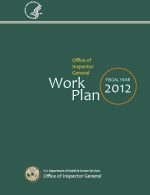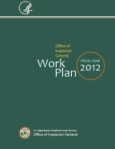 When the Stark II (Phase III) regulations were released in August, 2007, they clarified that when a hospital recruits a physician to a medical practice, the employment agreement between the medical practice and the newly recruited physician may contain practice restrictions as long as they do not “unreasonably restrict the recruited physician’s ability to practice medicine within the recruiting hospital’s service area. This stymied many medical practices which were reluctant to hire a new physician without a noncompete and nonsolicitation provision. A 2011 CMS Advisory Opinion (No. CMS-AO-2011-01) changed this.
When the Stark II (Phase III) regulations were released in August, 2007, they clarified that when a hospital recruits a physician to a medical practice, the employment agreement between the medical practice and the newly recruited physician may contain practice restrictions as long as they do not “unreasonably restrict the recruited physician’s ability to practice medicine within the recruiting hospital’s service area. This stymied many medical practices which were reluctant to hire a new physician without a noncompete and nonsolicitation provision. A 2011 CMS Advisory Opinion (No. CMS-AO-2011-01) changed this.
The Advisory Opinion involved a pediatric orthopedist who was recruited by a hospital to a medical practice. The medical practice wanted to hire the new doctor, but was not willing to do so without a noncompetition provision and other restrictive covenants. The practice asked CMS for guidance because the Stark regs suggested that perhaps a noncompete could not be contained in the employment agreement of a physician recruited by a hospital to join a local medical practice. In fact, a prior version of the Stark regs was clear that noncompetes were not permitted in the employment agreements of physicians recruited by hospitals.
Hospital recruitment transactions involve bringing a physician into a new area and funding the start up period (usually a year). The nice thing for a medical practice is that the dollars given by the hospital to the practice (the difference between salary and benefits and collections) can run into the hundreds of thousands of dollars! The down side was that the medical practice could not tie the recruited physician’s hands with a noncompete or other similar restriction. The Advisory Opinion is, however, a game changer because it allowed the medical practice to impose a noncompete on the recruited physician.
As mentioned, the practice would not hire the recruited physician without the noncompete. The noncompete had a 25 mile radius, and the Opinion cited the following relevant facts:
1.The recruited doctor would remain on one of five hospitals within the 25 mile zone;
2.The recruiting hospital’s service area extended beyond the 25 mile zone, in which there were at least three other hospitals within a one hour driving range;
3.The noncompete complied with applicable state law.
Based on these facts, the OIG permitted a one year noncompete because it did not “unreasonably restrict the doctor’s ability to practice in the recruiting hospital’s service area. Certainly, many other medical practices can be sure to follow suit.
Physicians interested in nocompetes must be familiar with state law. Getting to the bone of the issue, noncompetes are enforceable in Florida if:
1.The geographic zone in the noncompete is reasonable. This depends on where the practice draws its patients. If patients come to the practice from just down the street, a ten mile radius is probably overbroad;
2.The duration is two years or less (though it can be longer in some limited circumstances);
3.The employer has complied with all of the terms of the employment agreement. If the employer has breached the contract that contains the noncompete, most courts will reject a claim to enforce it;
4.The employer does the type of thing that the departing employee does. If the employee is the only person performing toe surgery for instance, and the practice will not provide toe surgery services once the employee leaves, the practice probably does not have a legitimate business interest to protect by enforcing the noncompete; and
5.Stopping the ex employee from practicing in the geographic zone does not create a healthcare crisis or shortage. This is tough. Very few practice areas are in such dire straits that the departure of one doctor will adversely affect the provision of such services in the area.
Physicians should also be familiar with the practical aspects involved in noncompetes.
Mistake #1 – Racing to litigation
Going to court is a crap shoot. Once litigation begins, it takes on a life of its own and costs can be nuts, sometimes in the hundreds of thousands of dollars. You may think it’s a simple noncompete case. There rarely is such a thing. And if you sue someone on a noncompete breach, they may turn around and sue you in the same lawsuit for something. And….insurance does not cover any such claims. That means you are paying out of pocket for a lawsuit, the certainty of which can never be guaranteed and which will seem endless once you run out of patience or money for the process. Often, the reality is that noncompete litigation involves the strategy or seeing which party can outspend the other one.
If you are an employer, ask yourself the following two questions before commencing litigation:
1.Does it make good economic sense to enforce the noncompete? Is the former employee a business threat?
2.Is there a way to work out a deal with the employee, short of litigation?
In some situations, it makes no business sense to pursue a noncompete. For instance, if the employee has been employed for several months and if the patients are all referred by the employer, then the employee may not be a competitive threat to the employer. The employer will find a replacement doctor at some point and refer the business to the new doctor. Case closed.
It is also possible to work out settlements before going to court. For instance, you might avoid litigation by lowering the geographic zone or the duration. You might also negotiate a buy out of the noncompete.
If you are an employee who wants out of the noncompete, sit down with the employer and see if you can agree on a way out, so that both of you can have peace and move on.
Mistake #2 – Doing it Yourself
Noncompetes are governed by state law. There are both statutes and cases that inform lawyers about what types of noncompetes are enforceable and which are not. Do not work off of an old contract to create a new noncompete, since the laws (and the cases that construe them) change often. Do not use a friend’s noncompete, since you will not be able to tell if it will be enforceable at this time or under the circumstances that apply to you. The enforceability of noncompetes is extremely fact specific. Since noncompetes are strictly construed by courts, drafting them requires a trained eye.
The Advisory Opinion marks a significant development in the area of noncompetes for physicians recruited to medical practices by hospitals. Though some states do not allow noncompetes to be applied to physicians, many states do, including Florida. Finding a way to satisfy both the federal and state authorities will be essential for ensuring an effective and enforceable noncompete.





 CNN Explains: Health care reform
CNN Explains: Health care reform